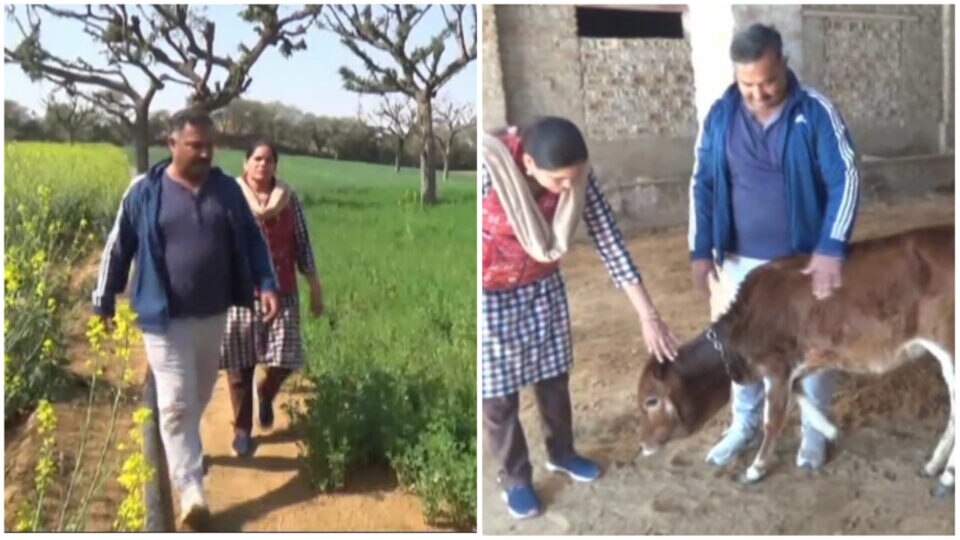

It may be said that today’s youth are turning away from traditional professions like farming, but Vikas Ranwan of Churu, after doing MCA, left the job of a reputed company like TCS as a pilot and has been successfully doing organic farming for about ten years. Vikas has now cultivated mustard, wheat, and rice in about forty bighas. He has not used any chemical fertilizer in the fields in the last 10 years. Despite this, they are getting good yields and the prices of organic grains are also good. He says that with the help of organic fertilizer, he has produced up to fourteen and a half quintals of wheat per bigha, which is a record in the area.
Use cow dung after decomposing it
Usually, farmers pile cow dung and then use it as fertilizer, which is not very effective. Instead, the compost made using bio decomposer is of higher quality. Bio-decomposer contains 6-7 bacteria, which convert cow dung into better fertilizer. The same decomposer is also being used for stubble disposal in Haryana-Punjab, due to which the problem of pollution due to stubble has now been solved to a great extent.
Saline water is the biggest challenge of the Churu district.
Vikas explains that farming is the most challenging task here due to salt water and weather fluctuations, but if farmers adopt advanced technology along with traditional farming and pay attention to innovation, then they can get better results. Farmers leave old things with difficulty. Now the government is focusing on nano urea but farmers are still believing more in grains whereas nano is better. In farming, it is necessary to focus on advanced and modern technology along with indigenous methods and proper use of one’s knowledge.
The deep connection between farming and animal husbandry
Vikas says that there is a deep connection between farming and animal husbandry. Animal husbandry is very difficult without farming and farming without animal husbandry is very difficult. Thinking this, he initially bought American cows. At one time he had about 55 American cows but he did not like the quality of their milk. Now he has 15-16 Sahiwal cows. Their milk is being sold at Rs 65 a liter and ghee at Rs 1500 a liter. This milk is not only thick, but according to doctors, it is more nutritious and has more immunity power. Apart from cows, Vikas is also doing goat rearing. He has about a hundred goats of the Iroha breed. They say that goat rearing is the best business in this area. This is an animal kinda ry area. Its manure is more effective than cow dung. Cow dung manure provides benefits for two-three years but goat manure provides nourishment to the soil for 7-8 years. The cost of its fodder is very low. There is a lot of potential for the goat farming business to grow in the coming times.
Got full benefits from government schemes
Vikas Ranwan himself is a capable farmer, yet he has got full benefits of the government’s subsidy schemes. He says that in this journey of organic farming, he got a grant for drip irrigation and a power ripper. He says that today many schemes are being run by the government for farmers and animal husbandry, if the farmers become aware and take advantage of them, then these schemes can become the vehicle of change in their lives. The benefits of government schemes are more effective only for those farmers who are doing farming or animal husbandry wholeheartedly.
Read More: The Penny Stock That Just Jumped 19%: Is Morepen Labs Finally Making a Comeback?

 Share
Share



